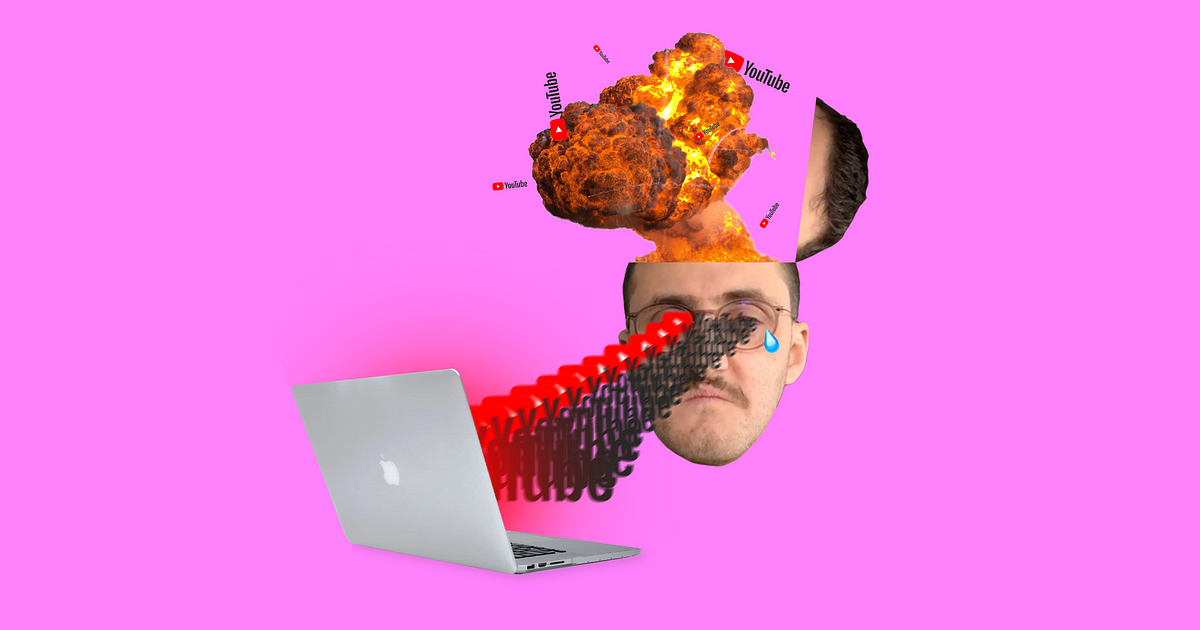My YouTube feed is 40% tutorials, 40% tech reviews and 20% cute animals. I consume more tutorials than would be useful, particularly in music making — which is funny because I do not make music. You can probably relate to this, because it’s something the whole world does. In fact, “how-to” is one of the most searched for terms on Google and 42.1B video views of online tutorials were generated on YouTube alone in 2018 (source).
The sheer volume of free YouTube tutorials is one of the many wonderful things about the internet. Yet, despite my thousands of hours viewing music tutorials, I still cannot produce a single song and continuously stumble my way around the tools. In fact, in many cases I feel worse about my progress and the tools. So why do I keep watching? A study by Michael Kardas, a researcher at the University of Chicago Booth School of Business, shows that watching others makes us overconfident in our own abilities. However, this overconfidence does not translate to performance. No amount of rewatching those videos impacts the real-world enhancement and only contributes to further overconfidence.
What the study does not explore is the satisfaction with oneself after watching those tutorials. After reading the study, a disturbing thought occurred to me. If I am overconfident after watching a tutorial, of course I’m going to be overly upset when I subsequently fail at trying to recreate what I saw. If watching more only increases confidence, then failure is that much more painful.
I haven’t found scientific evidence that this sense of failure is worsened by watching tutorials, but my own experience is enough for me to take pause. As with all things online, the abundance is a trap. Tantalizing but not productive. Without proactive effort, this style of learning results in little more than factoids for use in trivia nights. Naturally the algorithms won’t stop the autoplay videos to tell me I should try what I saw in the video before watching any more. That would be bad for business!
When it comes to my music learning, I recently opened up a DAW (digital audio workstation — the music production tool’s name) and just started tapping. While some of what I learned in the videos was helpful, I was actually learning more clicking on things and being productive in ways the videos never hinted at. This correlates with another finding in the study:
We found that extensive viewing allows people to track what steps to take but not how those steps feel when taking them.
Feeling our way through something is what we do organically as kids. Kids don’t care about how something should be done and instead try it for themselves to see if they enjoy it. Sure enough, my horrendous sounding first beat came from me feeling my way to completion. Most importantly, it followed none of the optimal rules the tutorials showed. For years I have dreamed of making my own beats and all it took was ignoring what’s right and just breaking things. It’s an overstated cliché but remembering it when it counts is what matters. Often as adults, we forget this.
I cannot stop dreaming of a web browsing experience that’s built for my mental health and development. In the case of tutorials, it would be wonderful if our devices encouraged practice over consumption. Reporting on how much we watched about a topic versus how much practice we could have done would be quite interesting. More aggressive tactics can include preventing us from watching more tutorials unless we admit that it’s purely for voyeurism or prove that we practiced. Would this sort of self-admission make us act?
Certainly, shaming and forcefulness are not the way forward but neither is the current frictionless, ad-driven state of content consumption. Learning and friction are closely intertwined, because practice is all about overcoming friction. So, what comes after finishing a YouTube tutorial? Nothing comforting. I just need to put in the hours. When I get disheartened, I need to remember that in a world where tech companies profit by promising effortlessness, our brains profit from effort.
